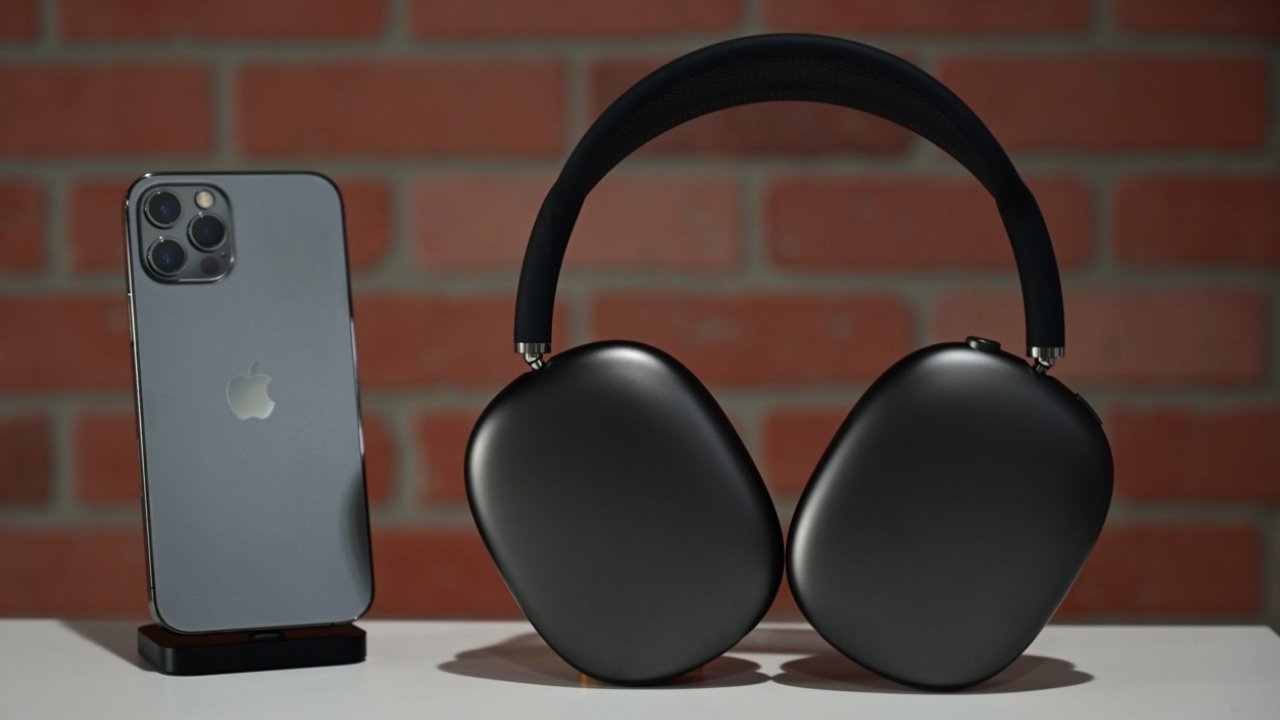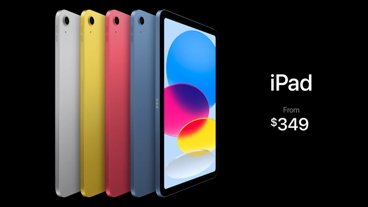AirPods Max expected to sell less than 1 million units in 2021, says analyst
Analyst Ming-Chi Kuo says Apple has a "dilemma" over AirPods sales in 2021, which is not helped by how relatively few AirPods Max he predicts will be sold.
In an investment note seen by AppleInsider, analyst Ming-Chi Kuo has reported that "AirPods 3" will not enter mass production until Q3 2021. It's not clear whether Apple will discontinue the AirPods 2 on launch, however, as Kuo sees issues with Apple's overall AirPods range, including the newest AirPods Max.
"In terms of product mix, we predict that AirPods 2 shipments will decrease significantly to about 3 million units in 3Q21 (vs. 12 million units in 3Q20)," writes Kuo. "We believe that the product transition is the main reason for the AirPods 2 shipment decline. We think it is still difficult to determine whether AirPods 2 will end production after AirPods 3 goes into mass production."
"If AirPods 2 will go to end-of-life after AirPods 3's mass production," continues Kuo, "we estimate AirPods 3, AirPods Pro, AirPods 2, and AirPods Max will account for about 40%, 28%, 31%, and 1% of total shipments, respectively, in 2021."
"If AirPods 2 will continue production after mass production of AirPods 3," the note says, "we estimate AirPods 3, AirPods Pro, AirPods 2, and AirPods Max will account for about 32%, 28%, 39%, and 1% of total shipments in 2021, respectively."
Kuo describes the AirPods Max as being of "limited help" to the product line, predicting "an annual shipment of about 1 million units."
Regardless of whether Apple retains the AirPods 2 or not, Kuo expects the AirPods Max to account for at most 1% of all AirPods sales in 2021. And he sees the range overall as declining in the face of competition from lower-cost rivals.
"We believe that the decline in AirPods shipments is due to the lack of a solid ecosystem to protect shipments' growth when it is difficult to differentiate the hardware selling points from competitors' low-price products," he writes.
"The key to the initial success of AirPods is the ease of use of Bluetooth connectivity and the high quality offered by TWS [True Wireless]," says Kuo. "While AirPods are still ahead of the competition in these two features, the leading advantages are gradually offset by competitors' strategies to improve the user experience and lower the price."
"[Sales] results show that consumers are not very willing to spend more than $100 to buy the selling points of AirPods Pro," he continues. "We believe that if AirPods shipments want to grow again in the future, they need to have a strong ecosystem or redefine TWS users' behavior through hardware innovation (such as providing health management functions.)"
Apple has not announced future health enhancements to the AirPods range. However, multiple patents and patent applications suggest that it's an area the company is pursuing.
 William Gallagher
William Gallagher












 Andrew Orr
Andrew Orr
 Amber Neely
Amber Neely

 Malcolm Owen
Malcolm Owen



 Mike Wuerthele
Mike Wuerthele









13 Comments
I wouldn't be shocked if the life of AirPods Max mirrors that of the HomePod. Apple seem ok with releasing trial/ stepping stone products - which leads to a concern that the success of the cheaper products is used internally as evidence for why they should discontinue high quality niche items.
However Apple is not like Sony, Sonos or Bose - Apple exists as a platform, they can't service just their most popular lines and expect consumers to not move to alternatives. We saw how Apple making little progress in their pro-hardware lineup led to certain newer technologies only able to be developed on PCs. This really isn't a mistake that Apple can keep making. It's why Adobe can't break out of their core 5 apps and why Google have tremendous difficulty converting users into new products.
I’m one of the people affected by an allergy to Apple’s AirPods Pro silicon tips.
I love the AirPods Max. They sound great, and the transparency mode and ANC are mind blowing.
But they’re TOO EXPENSIVE.
There has to be a way for Apple to maintain function and sound quality while reducing the price. I don’t care if they end up being plastic. Costs have to be cut somewhere.
Otherwise these will go the way of the HomePod, which had a similar pricing problem.
I can't see an issue here. AP Max were never going to be a mass market product. They will sell enough to be profitable for a while. The price will come down a little and the case will get a vast improvement in the next version. They will be profitable for a little longer.
They aren't a 'must have' by any stretch of the imagination so fall into Mac Pro 'wheels' category. Something that is there if you think you need it and are happy with the price.